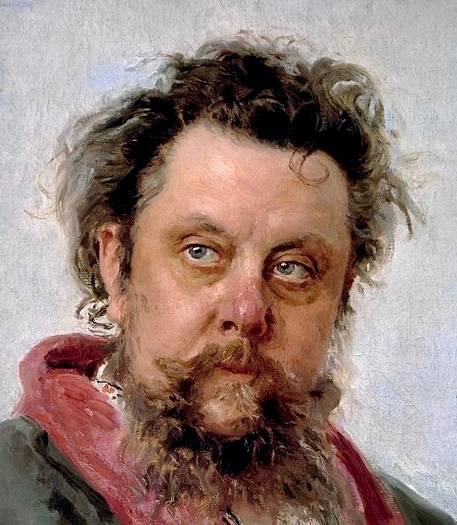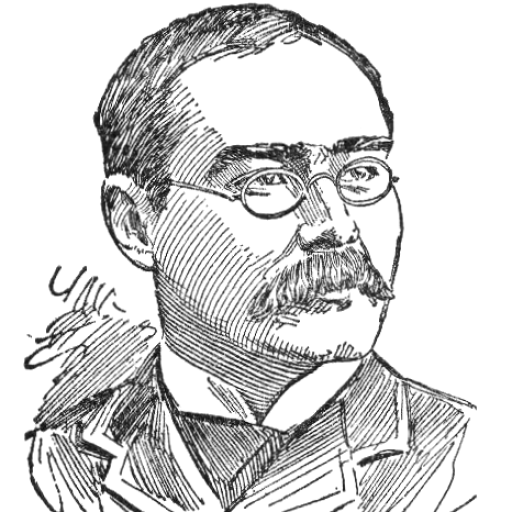Unclean, abominable, out-at-heels …

This is one of Kipling’s rare poems in blank verse – a form he used only for telling a story. This story-poem is the exact counterpart of Kipling’s 1894 short story “The Miracle of Purun Bhagat”. Purun Bhagat had been the Prime Minister of one of the states of India, and had all the power and honor a man could wish for; but chose at a certain age to leave his exalted position and spend the rest of his life as a hermit in a Himalayan cave. Ultimately, he saved the entire population of the village which had adopted him by hurrying to warn them of a gigantic landslide before it buried the village. The effort cost him his life, and later the villagers revered him as a saint.
Giffen, a former British soldier who “went native”, was a drunken bum – a sorry counterpart to Purun Bhagat, the admirable Indian Prime Minister who turned his administration into a model of progress and justice (an interesting thought for those who would accuse Kipling of racism!); but their story is the same – Giffen, too, saved the villagers who had adopted him by forcing them to flee their houses before the village was swept by a flood, in which he perished. Giffen’s story shows that a person can make up for a lifetime of uselessness and iniquity by an hour of service to his fellow human beings.
Giffen’s Debt
Imprimis he was "broke". Thereafter left (1) His Regiment and, later, took to drink; Then, having lost the balance of his friends, "Went Fantee" - joined the people of the land, (2) Turned three parts Mussulman and one Hindu, And lived among the Gauri villagers, Who gave him shelter and a wife or twain, And boasted that a thorough, full-blood sahib Had come among them. Thus he spent his time, Deeply indebted to the village shroff (3) (Who never asked for payment), always drunk, Unclean, abominable, out-at-heels; Forgetting that he was an Englishman. You know they dammed the Gauri with a dam, And all the good contractors scamped their work And all the bad material at hand Was used to dam the Gauri - which was cheap, And, therefore, proper. Then the Gauri burst, And several hundred thousand cubic tons Of water dropped into the valley, flop, And drowned some five-and-twenty villagers, And did a lakh or two of detriment (4) To crops and cattle. When the flood went down We found him dead, beneath an old dead horse Full six miles down the valley. So we said He was a victim to the Demon Drink, And moralised upon him for a week, And then forgot him. Which was natural. But, in the valley of the Gauri, men Beneath the shadow of the big new dam, Relate a foolish legend of the flood, Accounting for the little loss of life (Only those five-and-twenty villagers) In this wise: - On the evening of the flood, They heard the groaning of the rotten dam, And voices of the Mountain Devils. Then An incarnation of the local God, Mounted upon a monster-neighing horse, And flourishing a flail-like whip, came down, Breathing ambrosia, to the villages, And fell upon the simple villagers With yells beyond the power of mortal throat, And blows beyond the power of mortal hand, And smote them with his flail-like whip, and drove Them clamorous with terror up the hill, And scattered, with the monster-neighing steed, Their crazy cottages about their ears, And generally cleared those villages. Then came the water, and the local God, Breathing ambrosia, flourishing his whip, And mounted on the monster-neighing steed, Went down the valley with the flying trees And residue of homesteads, while they watched Safe on the mountain-side these wondrous things, And knew that they were much beloved of Heaven. Wherefore, and when the dam was newly built, They raised a temple to the local God, And burnt all manner of unsavoury things Upon his altar, and created priests, And blew into a conch and banged a bell, And told the story of the Gauri flood With circumstance and much embroidery. . . . So he, the whiskified Objectionable, Unclean, abominable, out-at-heels, Became the Tutelary Deity Of all the Gauri valley villages, And may in time become a Solar Myth. (5)
Notes
[1] ‘Imprimis’ – in the first place.
[2] ‘Went Fantee’ – went native .
[3] ‘Shroff’ – money-lender.
[4] ‘Lakh’ – one hundred thousand (rupees).
[5] ‘Solar Myth’ – i.e. in time, Giffen on his wild horse may replace Surya (the Hindu sun god, equivalent of Apollo) in his chariot, drawing the sun across the sky.
